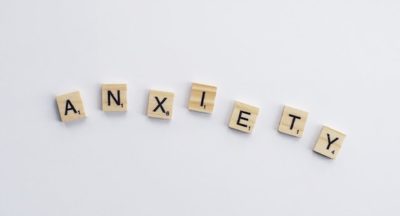
The many ways that depression influences sleep patterns: From insomnia to hypersomnia (not always symptom of narcolepsy).
Depression can significantly influence your daily sleep in various ways. Individuals experiencing depression often struggle with initiating and maintaining sleep due to persistent negative thoughts, worries, and a sense of hopelessness. This can result in a fragmented sleep pattern with frequent awakenings throughout the night. Depression may also lead to changes in sleep architecture, affecting the different stages of sleep, including REM sleep crucial for emotional regulation. Some individuals may experience hypersomnia, sleeping excessively despite persistent fatigue. Waking up in the morning becomes challenging, accompanied by feelings of lethargy and a lack of motivation. Depression can disrupt the natural circadian rhythm, causing irregular sleep patterns and variations in bedtime and wake-up times. Physical symptoms associated with depression, such as aches and pains, can contribute to discomfort during sleep. Medications prescribed for depression may also impact sleep, causing side effects like insomnia or daytime drowsiness. Additionally, depression often coexists with other sleep disorders, complicating sleep issues further. Addressing both the underlying depression and associated sleep disturbances is essential for overall well-being.

Let’s delve into a detailed exploration of how depression can affect sleep, potentially leading to harmful physical consequences in the context of sleep deprivation.
Depression can manifest in various ways that disrupt sleep:
Insomnia:
- Difficulty Falling Asleep: Depressed individuals may struggle to relax and initiate sleep due to persistent worry, rumination, and a racing mind.
- Frequent Awakenings: Once asleep, individuals with depression may experience numerous awakenings during the night, caused by nightmares, anxiety, or a general sense of restlessness.
Hypersomnia:
- Excessive Sleep: Conversely, some individuals with depression may experience hypersomnia, characterized by excessive sleep, either through extended nighttime sleep or increased daytime napping.
- Difficulty Waking Up: People with depression may find it challenging to wake up in the morning, often feeling groggy, lethargic, and lacking motivation to start the day.
Changes in Sleep Architecture:
- Altered REM (Rapid Eye Movement) Sleep: Depression can disrupt the normal cycling of sleep stages, potentially leading to changes in REM sleep. This stage is crucial for emotional processing and regulation, as indicated by some studies.
Sleep Fragmentation:
- Restless Sleep: Depression can result in a restless and fragmented sleep, with individuals tossing and turning, shifting positions frequently throughout the night. This can contribute to a sense of unrefreshed sleep.
Circadian Rhythm Disruption:
- Irregular Sleep-Wake Patterns: Depression may interfere with the body’s natural circadian rhythm, causing irregular sleep-wake patterns. This can result in inconsistent bedtimes and wake-up times.
Physical Symptoms:
- Pain and Discomfort: Depression is often associated with physical symptoms, including aches and pains. These discomforts can interfere with finding a comfortable sleeping position, potentially contributing to sleep disturbances.
Medication Effects:
- Side Effects of Antidepressants: Some antidepressant medications can impact sleep. While they may eventually alleviate depressive symptoms, they can initially lead to changes in sleep patterns, such as insomnia or drowsiness.
Sleep Disorders Comorbidity:
- Overlap with Other Sleep Disorders: Depression is commonly comorbid with other sleep disorders, such as insomnia disorder or sleep apnea. The combination of these conditions can worsen sleep disturbances.
It’s crucial to recognize that the relationship between depression and sleep is bidirectional. Poor sleep can contribute to the development or worsening of depressive symptoms. Addressing both the underlying depression and associated sleep disturbances is vital for overall well-being. If someone experiences persistent sleep problems or depressive symptoms, seeking guidance from a healthcare professional is advisable for proper evaluation and assistance.

It is crucial to discuss practical approaches for enhancing sleep. While these strategies may prove beneficial for some individuals, their effectiveness can vary. It is essential to experiment and identify the strategy that works best for you and yields optimal results.
- Maintain a Consistent Sleep Schedule: Go to bed and wake up at the same time daily, fostering a stable internal body clock.
- Develop a Relaxing Bedtime Routine: Engage in calming pre-sleep activities like reading, taking a warm bath, or practicing relaxation exercises to signal winding down.
- Create an Optimal Sleep Environment: Make your bedroom comfortable and sleep-friendly with darkness, quietness, and a cool temperature. Invest in a comfortable mattress and pillows.
- Minimize Screen Exposure Before Bed: Avoid screens (phones, tablets, computers) at least an hour before bedtime to prevent interference with melatonin production.
- Be Mindful of Food and Drink: Steer clear of heavy meals, caffeine, and nicotine close to bedtime, as they can disrupt sleep and impact its quality.
- Incorporate Regular Exercise: Engage in physical activity, but avoid intense exercise close to bedtime. Regular exercise promotes better sleep, particularly if done earlier in the day.
- Manage Stress: Practice stress-reduction techniques such as meditation, deep breathing, or mindfulness to calm the mind and encourage relaxation.
- Limit Napping: If napping is necessary, keep it brief (20-30 minutes) and schedule it earlier in the day to avoid disrupting nighttime sleep.
- Evaluate Your Sleep Environment: Ensure your bedroom is conducive to sleep by considering blackout curtains, white noise machines, or earplugs if needed.
- Control Liquid Intake Before Bed: Reduce the consumption of liquids close to bedtime to minimize the likelihood of waking up for bathroom trips during the night.
- Address Underlying Sleep Disorders: If sleep troubles persist, seek guidance from a healthcare professional to rule out underlying issues and explore suitable interventions.
- Explore Mind-Body Techniques: Try relaxation methods like progressive muscle relaxation, guided imagery, or biofeedback to calm both the mind and body.
- Consider Cognitive Behavioral Therapy for Insomnia (CBT-I): This structured program targets thoughts, beliefs, and behaviors contributing to insomnia, offering an evidence-based approach for improving sleep.
Remember, responses to these strategies vary among individuals, so experimentation may be needed to find what works best for you. If sleep difficulties persist, consulting a healthcare professional for personalized guidance is advisable.
dr.dan
Related Posts
The many faces of anxiety: Does the latter affect more than just the brain? Is it just mental or the physical gets affected? Let’s tackle each spectrum.
Anxiety is a complex condition that impacts more than just the brain, with...
Perfectionism and anxiety: The terrible duo making lives a living hell. How to let go of that obsession of always wanting to be perfect? Challenge accepted!
In the pursuit of perfection, many find themselves trapped in a cycle of anxiety...
You Should Know These Anxiety Disorder Facts !
Anxiety disorders are common when people confront what is happening or hear news....
Nasty side effects of depression with long term romantic relationships. How is your chronic depression affect your existing relationship and finding solutions to avoid losing the people you care about the most? Here are some valid strategies to make things work.
Depression is not just an individual struggle; it has far-reaching impacts...



